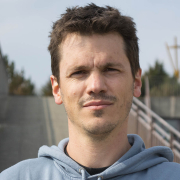
Copyright : Laboratoire LEMAR- 2018
Isabelle Arzul, Ifremer, Christine Paillard (WP4)
European
H2020
Start Date
03/04/2025
End Date
03/04/2025
The overarching goal of VIVALDI is to increase the sustainability and competitiveness of the European shellfish industry by improving the understanding of bivalve diseases and by developing innovative solutions and tools for the prevention, control and mitigation of the major pathogens affecting the main European farmed shellfish species: Pacific oyster (Crassostrea gigas), mussels (Mytilus edulis and M. galloprovincialis), European flat oyster (Ostrea edulis), clams (Venerupis philippinarum) and scallops (Pecten maximus). The project addresses the most harmful pathogens affecting either one or more of these shellfish species: the virus Ostreid herpesvirus 1 (OsHV-1), Vibrio species including V. aestuarianus, V. splendidus, V. harveyi and V. tapetis, as well as microeukaryotes such as the parasites Perkinsus olseni and Bonamia ostreae.
The project is committed to provide practical solutions based on the most advanced knowledge.
VIVALDI will dissect the disease mechanisms associated with pathogen virulence and pathogenesis and host immune responses, develop in vivo and in vitro models, and apply “omic” approaches that will help the development of diagnostic tools and drugs against pathogen targets, and breeding programmes in a collaborative effort with industrial partners. The proposal will include a global shellfish health approach, recognising that cultured bivalves are often exposed to several pathogens simultaneously, and that disease outbreaks can be due to the combined effect of two or more pathogens. The proposal will also investigate advantages and risks of the used of disease-resistant selected animals in order to improve consumer confidence and safety. VIVALDI will be both multi- and trans-disciplinary. In order to cover both basic and applied levels from molecules to farm, the proposal will integrate partners with a broad range of complementary expertises in pathology and animal health, epidemiology, immunology, molecular biology, genetics, genomics and food safety.
Consortium de 21 partenaires, issus de 10 pays. Les principaux collaborateurs du WP1, WP2 et WP4 :

 MOLLUSC
Scroll to top
MOLLUSC
Scroll to top